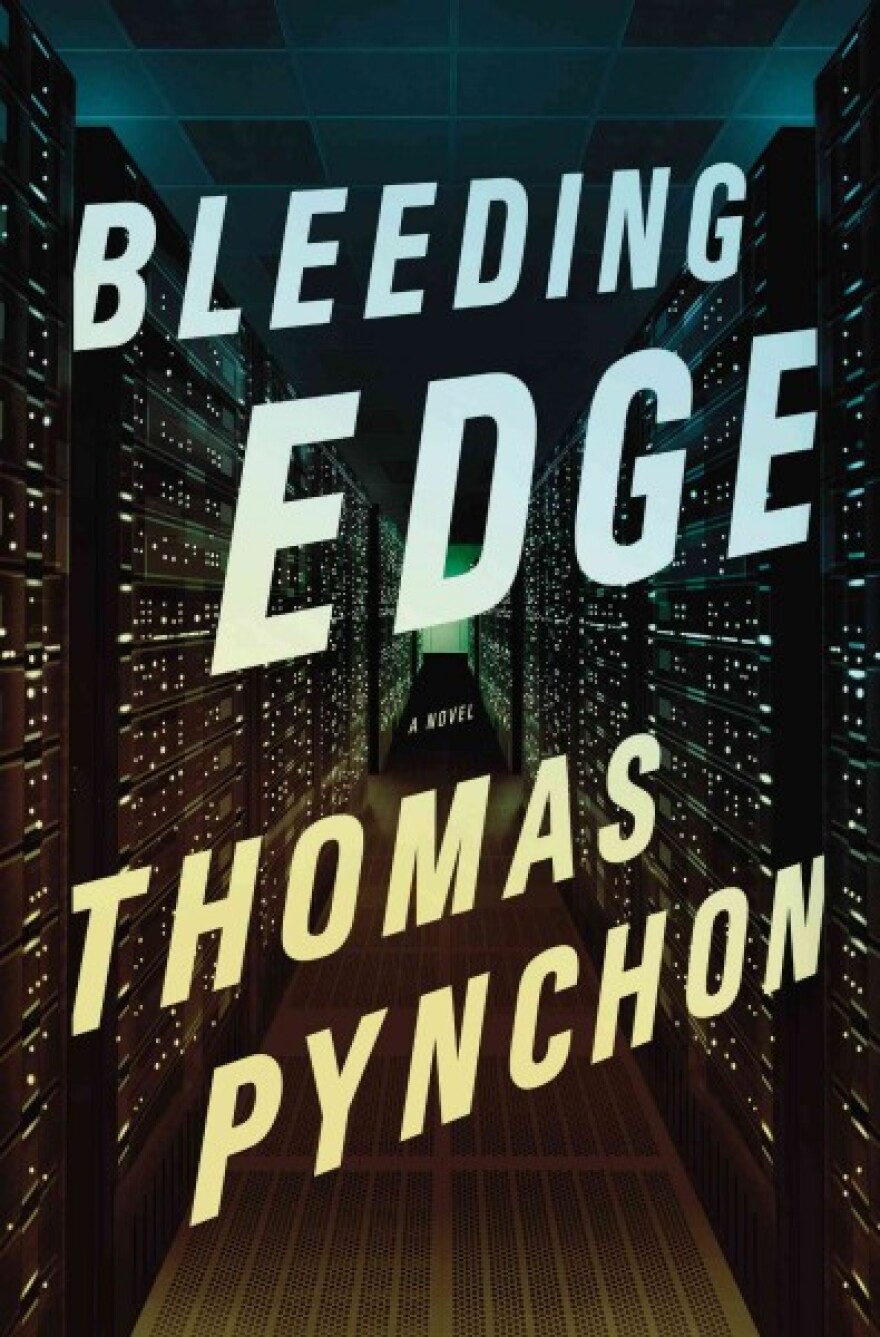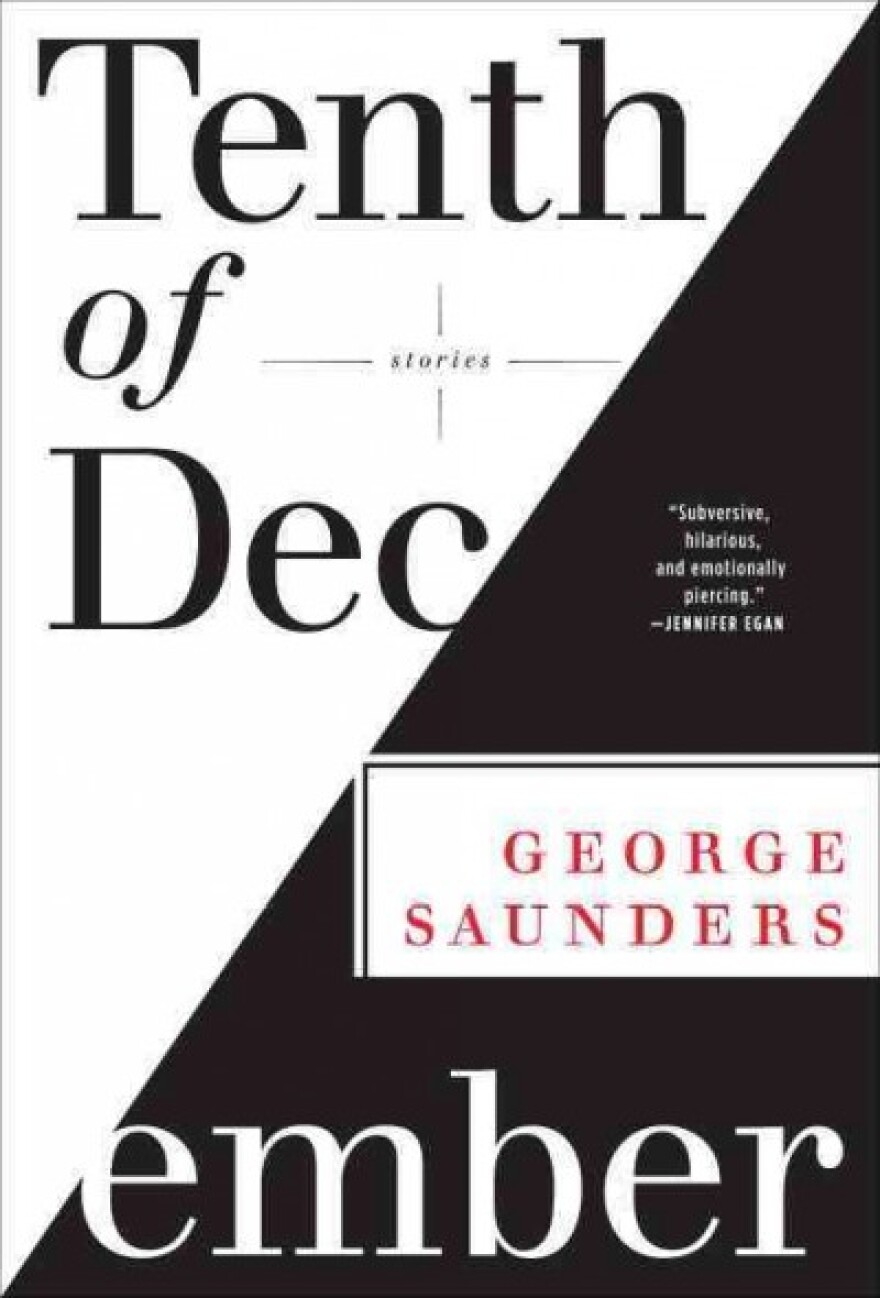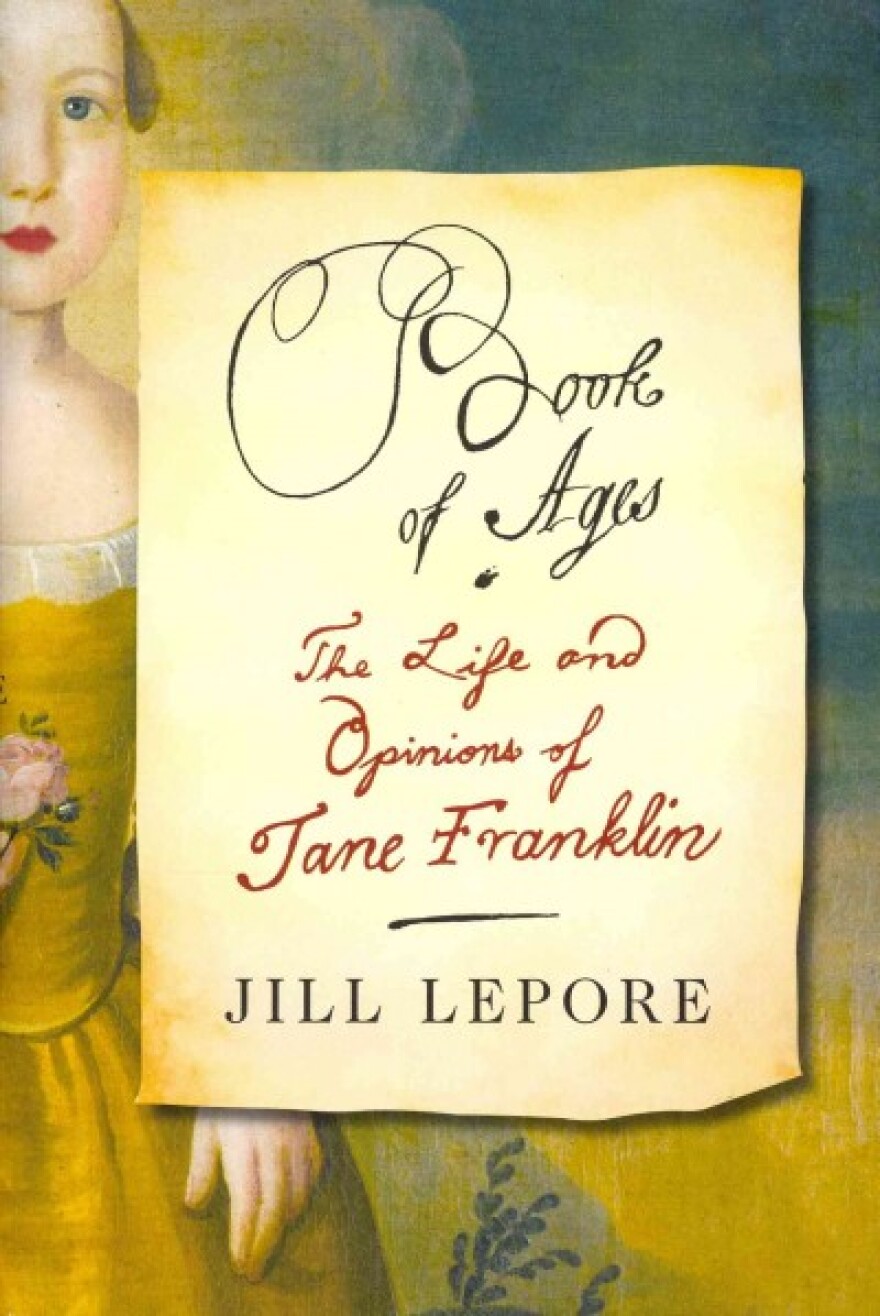On Tuesday night, finalists for the National Book Awards read from their nominated works at The New School in New York City. The National Book Foundation will announce the winners Wednesday night.
Get to know the books on the shortlist — for fiction, nonfiction, poetry and young people's literature — using NPR's reviews and author interviews. Click the "Listen" links in the write-ups below to hear the authors read from their works.
Copyright 2024 NPR. To see more, visit https://www.npr.org.
Fiction
The Flamethrowers

by Rachel Kushner
It's the 1970s in New York, and the art world is a rollicking, raucous place full of odd characters and exciting ideas. A young woman, unnamed, though nicknamed Reno for her place of origin, arrives into this scene hoping for a creative career in SoHo. But she falls in love with the estranged son of an Italian motorcycle scion and follows him back to Italy, where she gets embroiled in a radical social movement. Critic Maud Newton calls the book a "brilliant lightning bolt of a novel," one that is an "uncannily perceptive portrait of our culture — psychologically and philosophically astute, candid about class, art, sex and the position of women — with a deadly accuracy."
Listen to Rachel Kushner read from The Flamethrowers.
The Lowland

by Jhumpa Lahiri
Subhash and Udayan Mitra are brothers, and to say that they're close doesn't begin to describe their relationship. But their lives follow very different paths as Udayan marries young and becomes a radical in India's Communist Naxalite movement, while Subhash leaves his home country for school in Rhode Island. Lahiri tells NPR's Lynn Neary that she thought "it would be ... interesting for the story to set up a contrast between these two brothers, to have one involved politically and one to be aloof. Because I think it creates an inherent tension between the brothers, and I wanted to show how the movement could seduce one while [leaving] another indifferent."
Listen to Jhumpa Lahiri read from The Lowland.
The Good Lord Bird

by James McBride
Henry is a young slave living in the mid-19th-century Kansas Territory whose life takes a major turn when he meets the legendary abolitionist John Brown. Henry, disguised as a girl for his own safety, travels with Brown's militia and continues to hide his true identity through the historic 1859 raid on Harpers Ferry. NPR editor Barrie Hardymon writes, "You may know the story of John Brown's unsuccessful raid on Harpers Ferry, but author James McBride's retelling of the events leading up to it is so imaginative, you'll race to the finish. ... The famed abolitionist ... really comes alive — radical and obsessive, and ultimately doomed."
Listen to James McBride read from The Good Lord Bird.
Bleeding Edge

by Thomas Pynchon
Maxine Tarnow is an average New Yorker, a not-totally separated mother of two who owns a fraud investigation agency called "Tail 'Em and Nail 'Em." After looking into the finances of Gabriel Ice, a billionaire computer geek, she gets involved in a shady and eccentric underworld — one full of classic Pynchonian absurdity. In a review of the book, author Meg Wolitzer notes that it's "somehow touching that in the middle of this often unfollowable story of corruption, conspiracies, nefarious figures and forces, and a shifting, unknowable landscape, there's this mother and her kids, walking to school."
Listen to a reading from Bleeding Edge.
Tenth Of December

by George Saunders
This collection of fantastical stories includes "Home," a wryly whimsical account of a soldier's return from war; "Victory Lap," a tale about an inventive abduction attempt; and the title story, in which a suicidal cancer patient saves the life of a young misfit. Fresh Air's Maureen Corrigan wrote back in January, "Check back with me at the end of 2013; if [Tenth of December] isn't in this year's top 10, it will really have been an extraordinary year for books."
Listen to George Saunders read from Tenth of December.
Nonfiction
Book Of Ages

by Jill Lepore
American History professor Jill Lepore delivers a revealing portrait of Benjamin Franklin's youngest sister, Jane, who spent much of her life cooking, cleaning and raising children. Despite obscurity and poverty, Jane shared a lot of her brother's talents: She was a passionate reader, a gifted writer and a shrewd political commentator. Critic Maureen Corrigan says, "The brilliance of Lepore's book is that plain Jane's story becomes every bit as gripping — and, in its own way, important — as Big Ben's public triumphs."
Listen to Jill Lepore read from Book of Ages.
Hitler's Furies

by Wendy Lower
During World War II, hundreds of thousands of German women seized what they thought of as an unprecedented career — and marital — opportunity and joined the Nazi cause on the Eastern Front. Once there, nurses, teachers, secretaries and SS wives became plunderers, witnesses and executioners of the Holocaust. In Hitler's Furies, Wendy Lower — a consultant for the Holocaust Memorial Museum in Washington, D.C. — explores what she describes as a "historical blind spot": the history of women in Hitler's killing fields. But, says The Guardian's Ben Shephard, "Lower oversells her material. ... That women, as well as men, can abuse their fellow human beings, is hardly the novelty she claims."
Listen to Wendy Lower read from Hitler's Furies.
The Unwinding

by George Packer
According to New Yorker writer George Packer, there used to be a kind of understanding among Americans — one in which everyone had a job and a purpose. But that deal has come undone. In The Unwinding,, Packer explores what happened. The book is a collection of vignettes and profiles of ordinary and famous American lives, from the son of Southern tobacco farmers to a Silicon Valley billionaire. NPR critic J.P. O'Malley says, "Packer's strength as a storyteller lies in his ability to marshal a diverse range of voices from across the class divide." But, O'Malley adds, the scattered nature of Packer's narrative "means it inevitably lacks a sense of continuity and feels slightly long-winded for what it has to say."
Listen to George Packer read from The Unwinding.
The Internal Enemy

by Alan Taylor
Pulitzer Prize-winning historian Alan Taylor details how runaway slaves turned to invading British forces for freedom and protection during the War of 1812. In exchange, the former slaves put their intimate knowledge of American waterways and countryside toward the British war effort. The Wall Street Journal's Mark Smith calls The Internal Enemy "impressively researched and beautifully crafted."
Listen to Alan Taylor read from The Internal Enemy.
Going Clear

by Lawrence Wright
New Yorker staff writer Lawrence Wright draws from more than 200 interviews with current and former Scientologists for his book about the world of Scientology and the life of its founder, L. Ron Hubbard, who died in 1986. Religion writer Lisa Miller says Wright "brings a clear-eyed, investigative fearlessness to Scientology," and the result is "a rollicking, if deeply creepy, narrative ride." That said, Michael Kinsley notes in The New York Times that Wright is so fully immersed in his material, "he sometimes doesn't realize when he's left the reader behind."
Listen to Lawrence Wright read from Going Clear.
Poetry
Metaphysical Dog

by Frank Bidart
Many of Frank Bidart's most famous poems have been long, dramatic monologues in the voices of the doomed and disturbed — the anorexic Ellen West, the pedophilic murderer Herbert White, the brilliant dancer Vaslav Nijinsky. But in the shorter poems in Metaphysical Dog, the poet takes on his own persona: an aging, accomplished poet, perennially fascinated by humanity's uneasy blend of philosophical minds and animal bodies. Critic and frequent NPR.org contributor Craig Morgan Teicher writes that Bidart is "one of the true living masters of contemporary poetry: His unwaveringly intense inward gaze (which is offset by his need to constantly analyze and consume both high and low culture) is revered by poets and readers alike."
Listen to Frank Bidart read from Metaphysical Dog.
Stay, Illusion

by Lucie Brock-Broido
Lucie Brock-Broido's new collection is, in many ways, about the noncorporeal: Death, mourning, the tangled intangibles of language and the power of poetic imagination, like the "illusion" of the title, haunt this book. But Brock-Broido's work is simultaneously lush, tactile and physical — full of fabrics, flavors and colors, building up rich layers of objects and perceptions. In one poem, she wishes that the dead "will listen, finally, to Lucie now — still scribbling / Beneath her white uncorseted umbrella in the first draft of an early fall." Critic Craig Morgan Teicher calls Brock-Broido a "patient seamstress of subtle and ornate poetic tapestries," and this work weaves together the inner world and the outer into an allusive, ironic fabric, mythological and wry in turns.
Listen to Lucie Brock-Broido read from Stay, Illusion.
The Big Smoke

by Adrian Matejka
Jack Johnson, the first African-American world heavyweight champion, is a figure of mythological proportions; in this new collection, poet Adrian Matejka gives the boxer a voice that's wholly human. The poet examines race and racism from Johnson's singular perspective: the son of slave-born Southerners, the opera-loving international celebrity, the abusive playboy arrested for dating white women, the wealthy world champion who couldn't get served at restaurants. Matejka's unflinching verse conveys both Johnson's bravura and his bravery; both the power and the vulnerability of a bleeding, breakable body in the ring. In The Los Angeles Times, Carol Muske-Dukes admires how compellingly Johnson's verse channels the athlete: "Matejka goes round after round on the steely music of Johnson's authentic-poetic voice. "
Listen to Adrian Matejka read from The Big Smoke.
Black Aperture

by Matt Rasmussen
Black Aperture is an elegy writ large, a book mourning the suicide of the poet's brother. The collection is not born out of the rawness of fresh loss: "You have been dead // half of my life," Matt Rasmussen writes in "Burial." Instead, Rasmussen focuses on the strange complexities of building a life after tragedy. One of several poems titled "After Suicide" opens, "A hole is nothing/but what remains around it." What is left around the vacancy of a brother's violent death? Burned letters, parties warped by absence, ghostly answering-machine voices to be erased. At the Poetry Foundation, Kathleen Rooney praises the collection for daring to deny us closure: "It defies the genre's conventions and refuses relief — there are grace notes of peace, but there are no easy answers."
Listen to Matt Rasmussen read from Big Smoke.
Incarnadine

by Mary Szybist
Ten years after her debut collection, Mary Szybist returns with this long-awaited second book, a skeptic's consideration of the spiritual. Mixing the profane and the divine, she presents several unusual Annunciations; blurring the lines between herself and the Virgin, she provides an "Update on Mary." The poems are experimental in form — lines radiating out from an empty center, a poem consisting of a diagrammed sentence — and meditative in tone, finding beauty, sorrow and the divine in unexpected corners of modern life. Critic Craig Morgan Teicher praises Szybist as "a humble and compassionate observer of the complicated glory of the world and humanity's ambivalent role in it, as inheritors and interlopers."
Listen to Mary Szybist read from Incarnadine.
Young People's Literature
The True Blue Scouts Of Sugar Man Swamp

by Kathi Appelt
Sugar Man is a massive creature (a cousin of the Sasquatch) who loves tasty sugar cane and protects the swamp that bears his name — but he's been asleep for decades and the swamp is in danger from developers who want to turn it into an alligator-wrestling theme park. And not only that, there's a band of feral hogs on the loose. So it's up to raccoon brothers Bingo and J'miah, the newest members of the Official Sugar Man Swamp Scouts, and 12-year-old Chap Brayburn to wake up Sugar Man and save the day (and the swamp). Kirkus Reviews called True Blue Scouts a "rollicking, ripping tall tale with ecological subtext."
Listen to Kathi Applet read from The True Blue Scouts Of Sugar Man Swamp.
The Thing About Luck

by Cynthia Kadohata
Summer and her younger brother, Jaz, live on a farm in the Midwest — and when their parents are unexpectedly called away to care for relatives in Japan, they must help their grandparents bring in the harvest to make their mortgage payment. Harvesting wheat is hard work, made more difficult by Summer's growing interest in a boy and her grandfather's sudden illness. And then there's her brother, a difficult kid who's somewhere on the autism spectrum. Can Summer pull everything together and save the family farm? The descriptions of wheat farming can be a little dry, but School Library Journal says "strong family ties suffuse this novel with a tremendous amount of heart."
Listen to Cynthia Kadohata read from The Thing About Luck.
Far Far Away

by Tom McNeal
Narrated by the ghost of Jacob Grimm, Far Far Away is set in the oddly named town of Never Better, where Jeremy Johnson Johnson can hear ghost voices — among them, Grimm, who's trying to save Jeremy from the ancient and villainous Finder of Occasions. Complicating the situation is Jeremy's friend Ginger, whose purpose in life seems to be getting him in trouble. It's a modern fairy tale that owes quite a bit to the darker, dare we say grimmer, aspects of Jacob and his brother, and it's garnered plenty of critical praise, including a starred review in Publishers Weekly, which called it an "inventive and deeply poignant narrative."
Listen to Tom McNeal read from Far Far Away.
Picture Me Gone

by Meg Rosoff
Twelve-year-old Mila has an uncanny talent for reading a room — expressions and emotions are obvious to her, even in animals. Those abilities are put to the test when her father's best friend, Matthew, disappears, and Mila and her dad turn a planned vacation into a detective expedition, slowly piecing together the puzzle of Matthew's disappearance with bits of information from his wife and baby, his past and even his faithful dog, Honey. Eventually, Mila learns that even the person she thought she could read best has secrets, too. Booklist says Picture Me Gone offers "no condescension or compromise to the obvious audience either in premise or prose."
Listen to Meg Rosoff read from Picture Me Gone.
Boxers & Saints

by Gene Luen Yang
In this ambitious two-part graphic novel, Gene Luen Yang lays out two sides of the Boxer Rebellion, a nationalist uprising against foreign and Christian missionary influence that convulsed China at the turn of the 20th century. Little Bao, a peasant boy who finds inspiration in Chinese opera and divine visions, joins the rebellion after his father is beaten by foreign soldiers. Meanwhile, Vibiana, a girl taken in by missionaries after her family rejects her, must decide between country and faith in a story The Los Angeles Times described as "humorous and heartbreaking."


